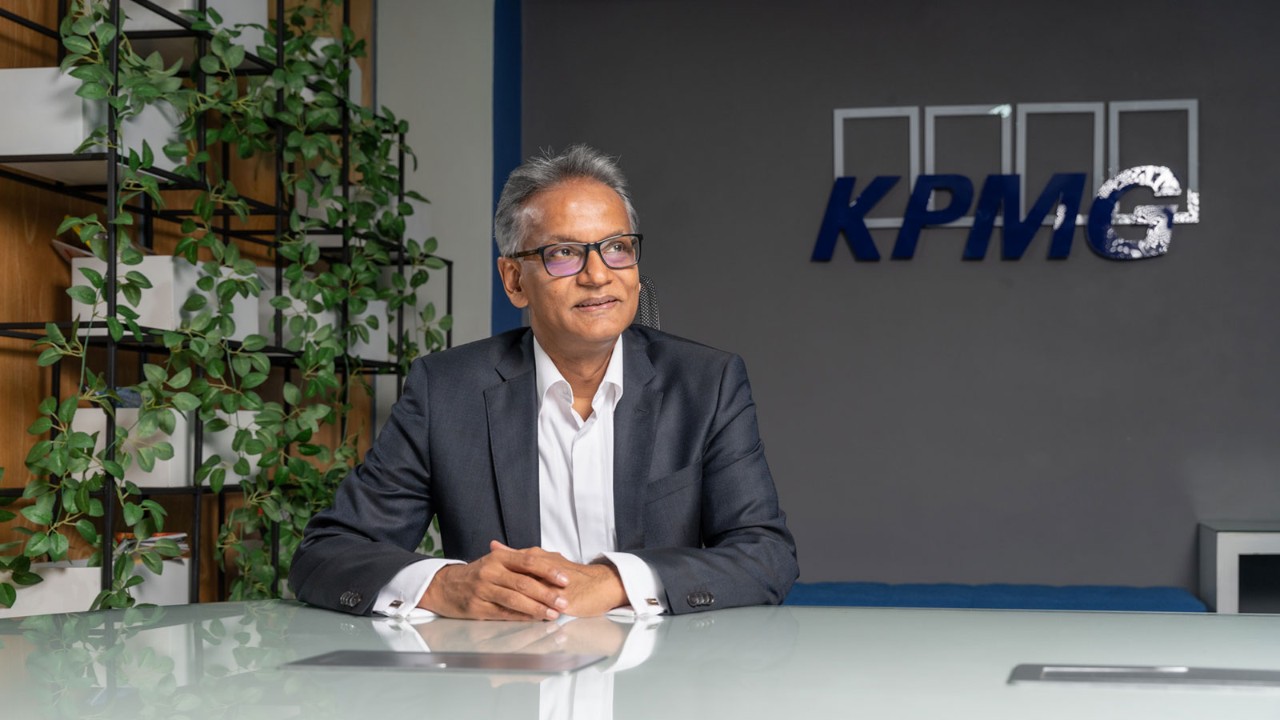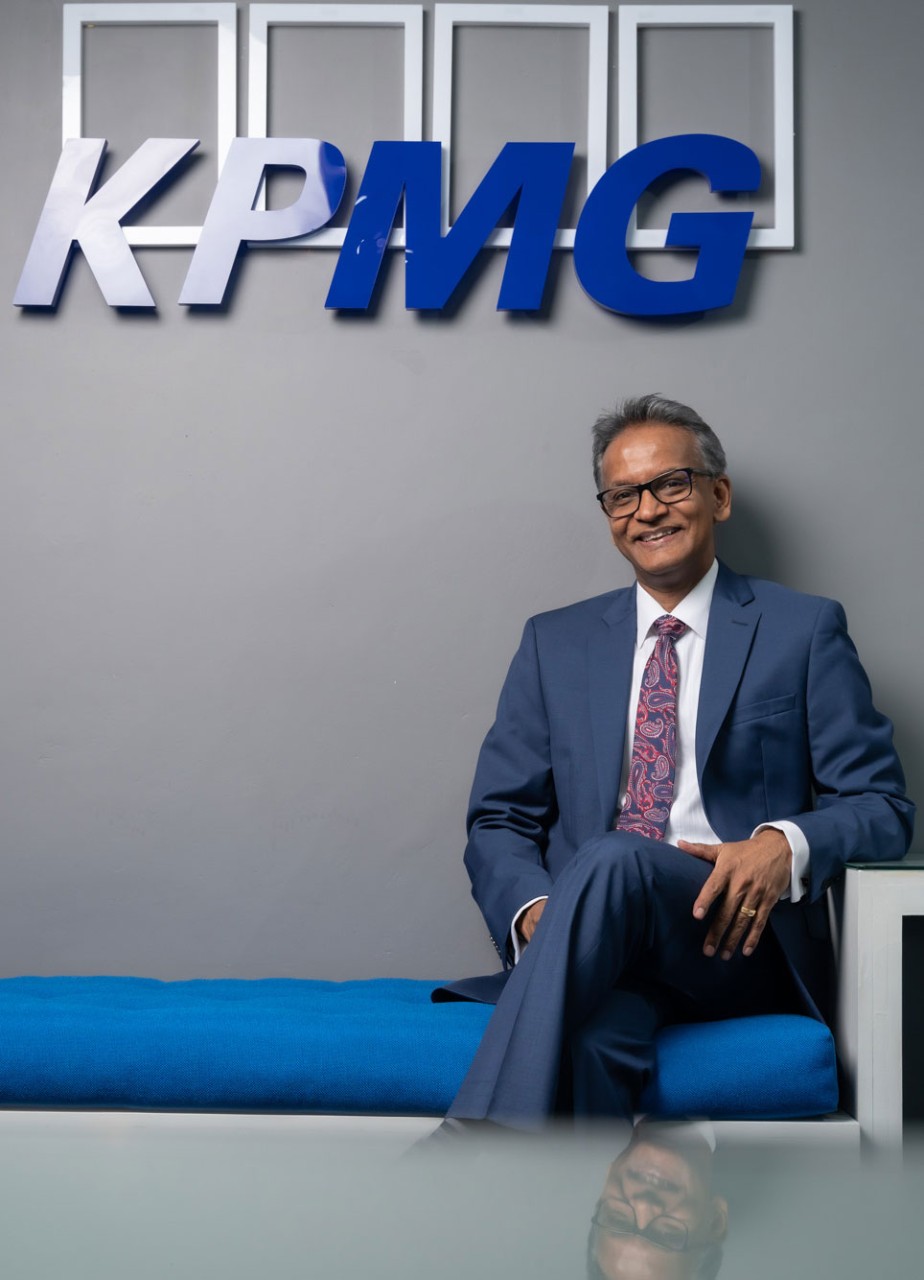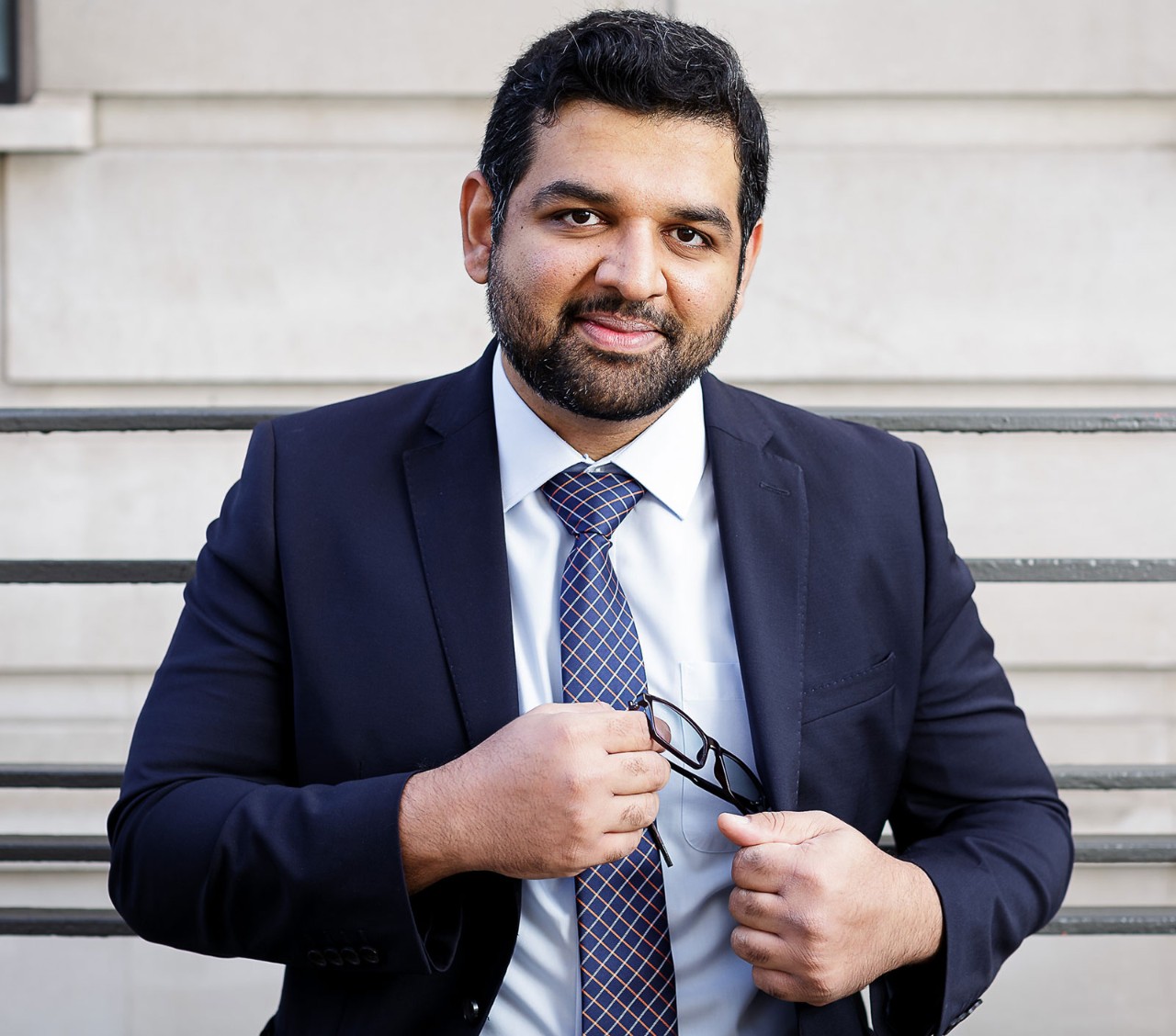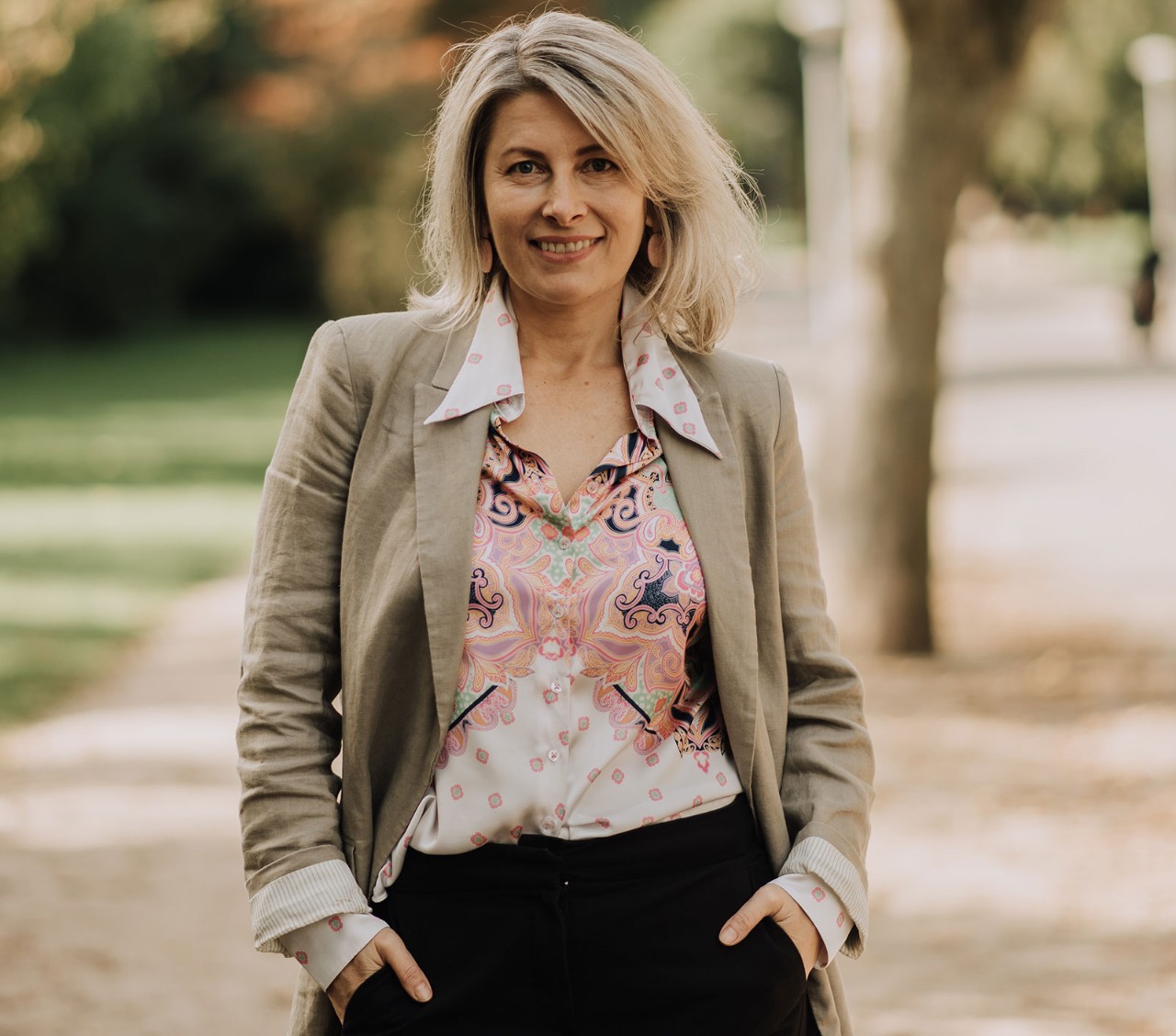
Suren Rajakarier FCCA is an enthusiastic advocate of his chosen career. ‘I am passionate about audit,’ the head of audit and assurance at KPMG Sri Lanka explains. ‘Over time, an auditor will work with hundreds of companies, meet hundreds of different people and solve hundreds of different issues. You learn on a daily basis. That is probably only possible in the auditing profession.’
‘I set the right tone to meet our ethical standards, and ensure integrity is at the core of what we do’
Basics
1,500+
Clients served by KPMG Sri Lanka, including more than 50% of the companies listed on the Colombo stock exchange
1,100+
Professionals, associates and multidisciplinary staff working for KPMG Sri Lanka
1897
Church & Co, the first predecessor firm to KPMG Sri Lanka, founded
21
Partners at the firm
2
Offices – in Colombo and in the Maldives
As KPMG Sri Lanka’s audit chief, Rajakarier has four main priorities: building trust, both within and outside the firm; achieving quality growth; assuring the technical excellence of the firm’s audit practice; and helping the firm attain operational excellence in relation to costs and fees.
‘My trust role is about setting the right tone at the firm to meet our ethical standards, and ensuring integrity is at the core of whatever we do,’ he explains. ‘In terms of growth, it's about trying to identify quality opportunities in the market, and ensuring we pursue and win them.’
Rajakarier also devotes a significant amount of time to audit quality. This includes putting in place systems of quality assurance and root-cause analysis, improving work through data and insight, and ensuring that IT resources are adequately funded and available.
‘Inspiring our people to relentlessly deliver quality work to the highest professional standards, using insights, tools and technology, and to complete their work on time all go into my role of driving operational excellence,’ Rajakarier reveals.
Opportunities and challenges
Being based in Sri Lanka, Rajakarier is used to operating within an interesting – if often difficult – business context. For nearly three decades, the country endured a brutal civil war that ended only in 2009. It was also devastated by the Boxing Day tsunami of 2004, which claimed 40,000 lives in Sri Lanka. More recently, nearly 300 people were killed in the 2019 Easter bombings, when suicide bombers targeted churches and hotels in the country. The tragedy was a huge blow to Sri Lanka’s tourism sector, which then contributed around 12% of its GDP.
Sri Lanka was still reeling from the shock when Covid-19 struck. To combat the health emergency, the government imposed a national lockdown. Sri Lanka’s economy shrank by 3.6% during 2020, according to the World Bank, its worst growth performance on record. This year, the outlook is somewhat brighter, with the economy predicted to expand by 3.3% in 2021.
Covid-19 has had both a negative and a positive impact on Sri Lanka’s financial services sector. In 2020, the Central Bank of Sri Lanka encouraged the country’s licensed banks to offer a debt moratorium to businesses and individuals affected by the pandemic, hitting banks’ profits in the short to medium term. At the same time, however, the pandemic has accelerated digital transformation, improving customer experience while reducing operational costs.
Top tips
‘Success will come if you work with a purpose and build your career patiently.’
‘Excellence means putting your shoulder to the wheel to do the groundwork, taking personal responsibility for continuous learning, and relentlessly delivering quality work to the highest professional standards.’
‘Be bold enough to step outside your comfort zone to exceed your potential.’
‘Have the courage to challenge something when it’s wrong; learn to stand up for what you believe in, even under pressure.’
‘You don’t have time to fail and learn from your failures, so learn from the mistakes and failures of others.’
‘Aside from double-entry accounting, almost everything about the profession has changed’

CV
2019
Director, KPMG Technology Services
2016-present
Board member, KPMG Sri Lanka and Maldives
2007-13
Regional head of financial services, KPMG MESA
2006-present
Head of audit and assurance, KPMG Sri Lanka
1987
Audit associate, KPMG Sri Lanka, and subsequently manager, partner and head of learning and development
From his own perspective, Rajakarier’s biggest challenge is retaining talent. With competition fierce, Rajakarier’s strategy for retaining talent in Sri Lanka for the long term includes arranging for the firm’s professionals to benefit from the mobility on offer within the KPMG network.
‘Before Covid hit, we used to send our people on secondment to other countries,’ he explains. ‘Currently we are allowing them to work with other network firms so that they gain more, and better, experience and exposure. By doing that, we hope to retain them for a longer period in Sri Lanka.’
Advocate for ACCA
Rajakarier’s own career began in 1987, when he joined Ford, Rhodes, Thornton & Co, the predecessor firm to KPMG Sri Lanka. Quickly identified as a rising star, he made partner in 1995, following a stint in KPMG’s London office. In 2006, he became head of audit and assurance.
Initially, Rajakarier studied for Sri Lanka’s chartered accountancy qualification, but he later qualified for ACCA through the exemption route. In 2007, ACCA recognised KPMG as the country’s first Platinum Employer firm for training and development – a status that Rajakarier, as the firm's head of learning and development since 2000, played a key role in achieving.
Rajakarier accepted an invitation to join ACCA Sri Lanka’s council, and later acted as vice chair, then chair. ‘I enjoy coaching and teaching,’ he explains. ‘So, I thought the best way to be a role model would be to advocate for ACCA and promote the accounting profession.’
More innovation
Reflecting on his 30-plus career in the profession, what are the biggest changes that Rajakarier has seen? He laughs at the question. ‘I joke about this,’ he says. ‘Aside from double-entry accounting, almost everything has changed.’
He continues: ‘When I joined, it was manual records and batch processing. Remote working was unheard of. Now we are using data analytics, software and robotic processes to do work, and our audit software is a cloud-based platform. We also collaborate with technology companies to deliver solutions for our clients, and inventory counts are being done using drone technology.’
More innovation will follow, Rajakarier reveals. ‘KPMG is discussing virtual audits, where transactions are audited as they happen. And we’re talking about technology-enabled risk assessment tools, using artificial intelligence.’
Sustainability focus
Going forward, Rajakarier will focus on addressing the expectation gap that exists locally between what auditors do and what companies’ stakeholders believe they should be doing. The firm will also be developing its sustainability assurance offering.
KPMG International has its own impact plan, which combines the collective environmental, social and governance commitments of the network’s member firms. At a local level, the Sri Lankan firm has helped the country to build back from the 2004 tsunami through its foundation and continues to be involved with a number of sustainable projects.
‘We try to make positive changes in our local communities on a regular basis,’ says Rajakarier. ‘That is important for ensuring that the communities we work in are looked after, that we build good relationships with our markets, and that we make Sri Lanka a better place for living.'


